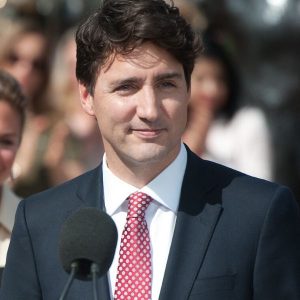
By Nathan Elberg
In a pre-election blog post I discussed how the tent of the Canadian Liberal Party was large enough to accommodate anti-Semites such as Hassan Guillet, whose creed included the claim that Jews use children’s blood for baking matza. His racism was made public before the Liberal spin team could counter it. Guillet was replaced by Patricial Lattanzio, who swept the riding. Guillet, running as an independent, came in fourth out of eight candidates.
The Liberal parliamentary tent has been reduced to one hundred and fifty-seven members, of whom five are Jewish. That’s three percent of the Liberal caucus. According to the website Muslim Link, there are more than double the number of Muslims in Parliament, almost all members of the Liberal Caucus. Does that mean that Muslims have more than double the influence?
No, according to John Ivison of the National Post. “Political power,” he says, “is no longer located in cabinet or in Parliament, but is now held by the prime minister and his immediate coterie of unelected advisors.” And those advisors are the same team who helped him first get elected in 2015.
So who was it that decided that Canada should vote in favor of a United Nations motion put forward by “the state of Palestine”, North Korea, Zimbabwe and others? Surely it wasn’t the Parliamentary Liberal Caucus, surely it wasn’t the lame duck Cabinet. And why did the government make that decision, reversing a long-standing tradition of opposing or at least abstaining on vicious anti-Israel UN resolutions?
The answer lies with the advisors. Their focus is to get Trudeau elected, and then re-elected. This becomes even more critical when there is a minority government. Trudeau greatly appreciates symbolic gestures and wants to appear responsive to those for whom it is an article of faith that Judea and Samaria are under illegitimate occupation. By supporting the North Korean-Zimbabwean motion, he has told the foes of Israel that they are moving closer to the center of the Liberal tent, displacing the friends of Israel who historically held that place.

